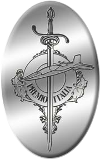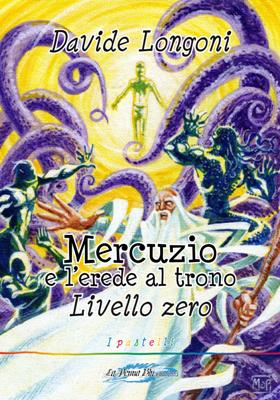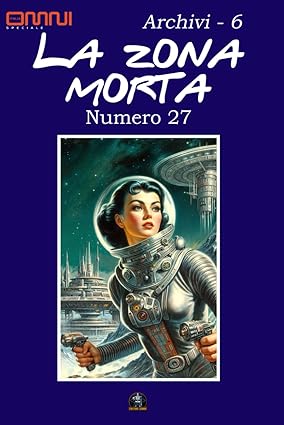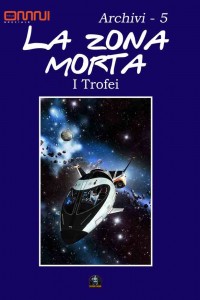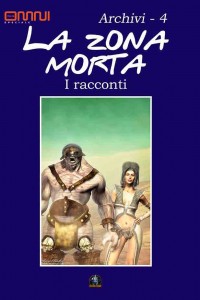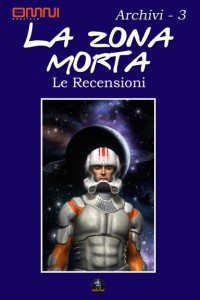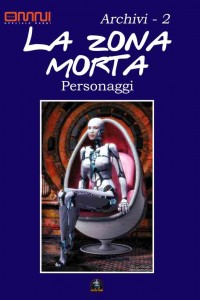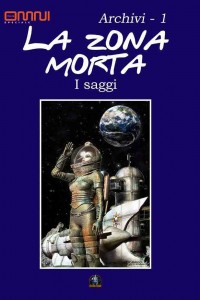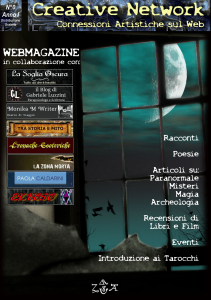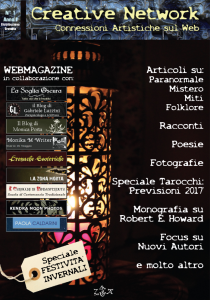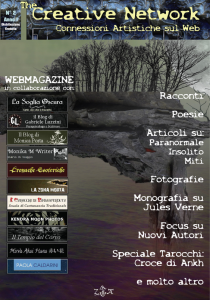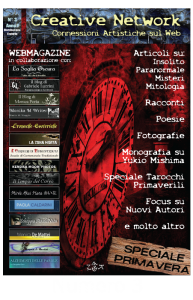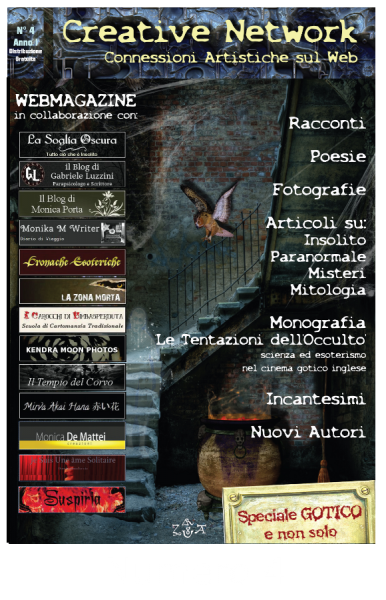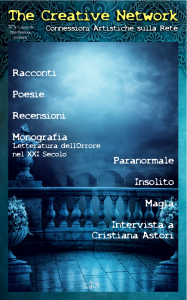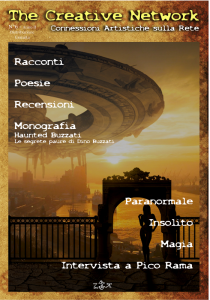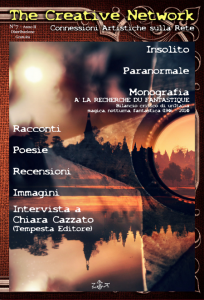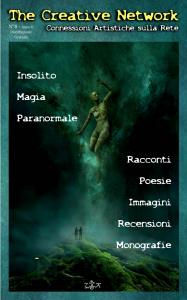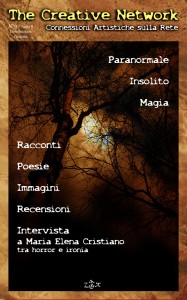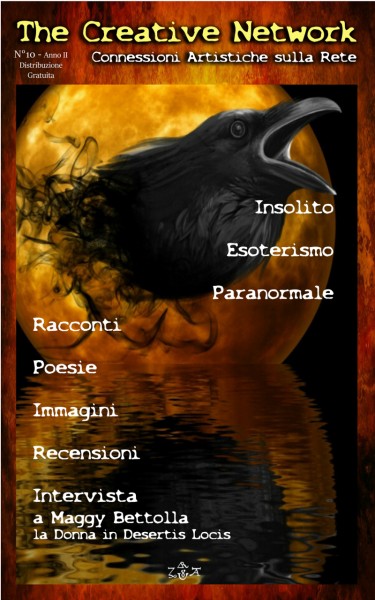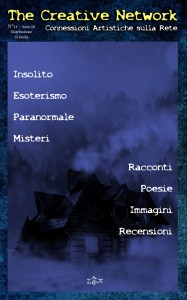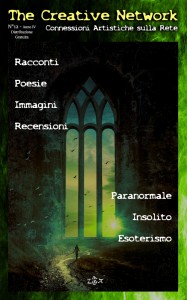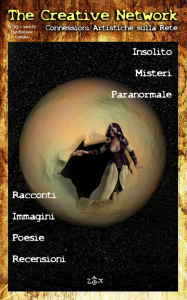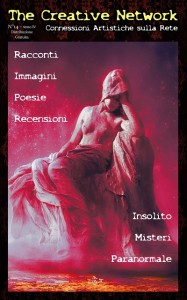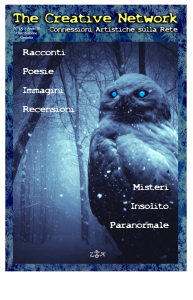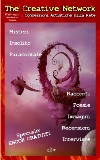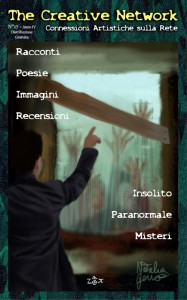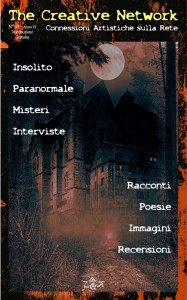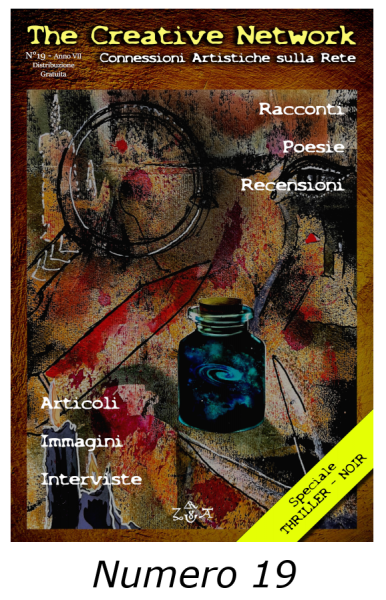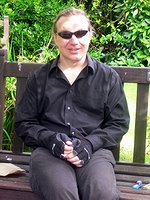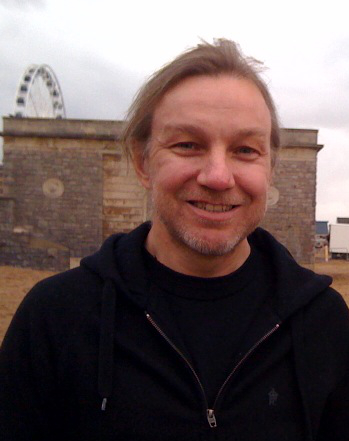 Paul Dale vive in Inghilterra ed è un grande appassionato di fantasy… ma non solo, visto che quando non scrive, adora andare in bicicletta e fare molte altre cose. Il suo primo romanzo, “Il libro segreto del Signore Oscuro”, è stato da poco tradotto in Italia e nel Regno Unito è stato un grande successo. Abbiamo avuto il piacere di intervistarlo per voi: ecco cosa ci ha raccontato.
Paul Dale vive in Inghilterra ed è un grande appassionato di fantasy… ma non solo, visto che quando non scrive, adora andare in bicicletta e fare molte altre cose. Il suo primo romanzo, “Il libro segreto del Signore Oscuro”, è stato da poco tradotto in Italia e nel Regno Unito è stato un grande successo. Abbiamo avuto il piacere di intervistarlo per voi: ecco cosa ci ha raccontato.
PENSO CHE SI POSSA INIZIARE DAL PRINCIPIO: CHI E’ PAUL DALE?
Questa è una bella domanda ed è una di quelle che pongo a me stesso fin da quando avevo diciassette anni. In parole povere, io sono un inglese di mezza età che si gode la vita e, in particolare, andando in bicicletta, scrivendo, giocando e guardando film. Ma questo non dice molto. Penso che se dovessi essere pressato, direi che sono una persona curiosa che è affascinata dal mondo (e non solo) e si diletta in umorismo e fantasia. Anche il cattolicesimo romano e il buddismo hanno avuto una grande influenza su di me, così come sono cresciuto nel primo caso, sono maturato poi nell’ultimo caso.
COME HAI COMINCIATO A SCRIVERE?
La prima cosa che ho scritto è stata breve, storie a fumetti che hanno coinvolto i miei amici in un ambiente fantasy. Io lavoravo e frequentavo corsi serali, dilettandomi con idee innovative. Mi sono ampliato, scrivendo romanzi più generici e racconti brevi, essenzialmente per imparare il mestiere di raccontare una storia e lo sviluppo dei personaggi. Credo che i racconti, se fatti bene, insegnino economia ed efficienza nello scrivere. Dopo diversi anni di questo, ho usato quei racconti per entrare in un Master dove ho imparato a scrivere in molte discipline, tra cui soggetti, testi radiofonici, teatrali e romanzi.
VUOI PARLARCI DEI TUOI PRIMI LAVORI?
I miei primi lavori seri sono stati probabilmente i racconti, tra i quali sono più che soddisfatto di The Flamenco Dancers, Fast Food Fast Money and A Blobby Man in a Bath. Quest’ultimo è apparso nell’antologia Masters. “Il libro segreto del Signore Oscuro” è il primo romanzo di cui sono stato abbastanza felice che venisse pubblicato, ma ho anche scritto un romanzo ambientato a Las Vegas intitolato “Take Me to the River”, che si trova sul mio computer e mi schernisce. Io, un giorno, lo rispolvererò e lo pubblicherò.
IL TUO LIBRO PIU’ FAMOSO E’ “IL LIBRO SEGRETO DEL SIGNORE OSCURO”. COSA PUOI DIRCI AL RIGUARDO?
“Il libro segreto del Signore Oscuro” è il risultato di una singolare concatenazione di pensieri. Sono cresciuto un rigoroso cattolicesimo romano e il concetto di peccato originale è uno di quelli che mi ha sempre colpito. Per qualche motivo, un giorno stavo pensando a cosa succederebbe se un bambino nascesse realmente malvagio, fin dall’inizio. Era un’idea che sembrava ridicola, e quello che seguì rapidamente era l’idea dei Signori Oscuri nel fantasy, e da dove vengono? Anche un Signore Oscuro ha una madre, giusto? Poi come ha fatto effettivamente a diventare un Signore Oscuro? Non è come una professione regolare. Diventava sempre più divertente per me più ci pensavo, e così ho iniziato a scrivere. Ho considerato molte ambientazioni, ma il fantasy mi ha dato la maggior parte del materiale ed è per questo che è dove i Signori Oscuri dominano cosa che mi ha anche offerto la possibilità per l’umorismo. Sembrava un’idea perfetta.
COME HAI INVENTATO LA STORIA E COME SI SVILUPPERA’ LA SERIE?
Ho provato a scrivere in molti modi diversi. Penso che ogni scrittore scriva in modo diverso. In un romanzo, potrei avere tutta la storia ben tracciata e tutti i personaggi noti. Con “Il libro segreto del Signore Oscuro”, non era quel caso. Ho avuto l’idea, e ho iniziato con il concepimento e la nascita di Morden, ed è progredito da lì. Altri temi nel libro provengono da ciò che stava accadendo in quel momento; così le grandi imprese e la crisi bancaria, e stavo guardando un sacco di concorsi di cucina (“Master Chef”), che sembra collegato a questo strano fascino che sembra esistere tra lo scrivere fantasy e il cibo. Così ho deciso di divertirmi con questo. Per quanto riguarda la serie, ho avuto una chiara idea di dove volevo andare, ma non aveva idea di come il primo libro sarebbe stato accolto. E’ stato difficile consegnare quello che pensavo fosse una storia completa, pur riservandomi di proseguire con i libri. Se “Il libro segreto del Signore Oscuro” non avesse funzionato, mi sarei spostato su un altro progetto. Così com’è andata, il sequel è notevolmente in fase di sviluppo. Io non voglio ripetermi troppo, quindi, anche se restano il tema generale e lo stile, credo che sia un altro tipo di storia con temi diversi. Mi sto divertendo con personaggi vecchi e nuovi, quindi sono fiducioso che tutto andrà per il meglio.
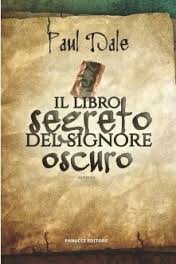 QUALI SONO STATE LE DIFFICOLTA’ CHE HAI INCONTRATO NELLA CREAZIONE DEI PERSONAGGI E DELLE AMBIENTAZIONI?
QUALI SONO STATE LE DIFFICOLTA’ CHE HAI INCONTRATO NELLA CREAZIONE DEI PERSONAGGI E DELLE AMBIENTAZIONI?
La difficoltà con i personaggi è quello di renderli reali, almeno per me. Una delle cose più importanti per me era di rendere Morden, un Signore Oscuro in essere, una persona reale, con i tipi di punti di forza e di debolezza che tutti noi abbiamo. Allo stesso modo, con personaggi come Edwin e Penbury, essi hanno bisogno di avere vite reali e personalità. Per quanto riguarda i luoghi, non è un caso che il libro inizi in una locanda. Il fantasy è pieno di cliché, e dato che uno degli obiettivi del libro era quello di prendere in giro in maniera leggera il genere, è stato un buon punto di partenza. A parte ciò, questo libro non era, nella mia mente, per creare un nuovo mondo cosa che è stata fatta così bene da molti scrittori, ma per usare luoghi che il lettore potesse facilmente collegare per concentrarsi di più sulla storia e sui personaggi. Alcuni dei luoghi, come Firena, nascono dal mio aver viaggiato in Spagna e in Italia e dal mio amare gli antichi borghi medioevali come Granada, Siviglia, Venezia e Bologna (in ogni caso la metà).
RECENTEMENTE IL TUO LIBRO E’ STATO TRADOTTO IN ITALIA. COSA NE PENSI DEL NOSTRO PAESE?
Sono stato solo una volta in Italia, e ho visitato Bologna, Firenze e Venezia, cosa che credo sia un buon inizio. Sono molto appassionato di storia, e vivo in una città (Bath) che è stata essenzialmente fondata da Roma, quindi sento abbastanza affinità con l’Italia. Penbury è un personaggio abbastanza inglese, ma è uno che vive in una città di tipo latino e ama il cibo, il vino e le arti. Poi c’è il mio amore per il ciclismo e il Giro. Io lo guardo ogni anno. E’ un grande evento e mette in mostra l’Italia come un paese bellissimo.
IN QUESTI ANNI HAI SEMPRE AVUTO UNA PREDILEZIONE PER IL FANTASTICO. CHE SIGNIFICATO HA PER TE QUESTA TEMATICA?
Ho studiato Fisica all’università dove ho scoperto le meccaniche quantistiche e la fisica delle stelle. Penso che l’universo sia un posto fantastico e che sia pieno di cose fantastiche. Io credo che quando si tratta fantasy e fantascienza, sia una maniera per afferrare proprio questo fascino per questo mondo, inventando luoghi ancora più sorprendenti e fantastici nella fantasia e e condividendoli attraverso la scrittura. Se potessi dipingere, forse avrei fatto in questo modo. Se potessi suonare la chitarra, allora forse attraverso la musica. Com’è come non è, io scrivo e questo è un bel mezzo per comunicare il fantastico.
ORA UNA DOMANDA GENERALE. DOVE TROVI L’ISPIRAZIONE PER TUTTE LE TUE STORIE?
La maggior parte delle idee che ho per le storie arriva quando meno me lo aspetto. A questo punto, butto giù l’idea e la metto in una cartella sul computer. Il più delle volte, le idee sono estensioni assurde di cose banali o persone che trovo interessanti. A volte vengono da conversazioni nella mia testa tra personaggi che si presentano a me. Amo il dialogo e le osservazioni in particolare.
QUALI SONO I TUOI SCRITTORI PREFERITI?
Se avessi una Top Tre, attualmente sarebbero probabilmente Haruki Murakami (famoso per “Norwegian Wood”, ma ha scritto molti grandi libri), Cormac McCarthy (che ho scoperto quando studiavo letteratura americana) e Iain Banks (una grande perdita). Le Top Tre non sono però così giuste, e ci sono tanti buoni scrittori. Amo il lavoro di Charles Stross, in particolare la serie Laundry, così come ho letto molto H.P. Lovecraft all’università. Ero all’università quando The Colour of Magic (in italiano “Il colore della magia”, ndr) è stato pubblicato, e subito ho letto tutto ciò che Terry Pratchett ha scritto per anni, finché la sua prolifica produzione mi ha fatto fuori. Il mio libro preferito suo è probabilmente “Mort”. Quando si tratta di umorismo, andando indietro nel tempo, Andrew Marshall e John Lloyd hanno fatto grandi cose, e ci sono un paio di omaggi alla loro parodia radiofonica alla BBC “Hordes of the Things” (da “Lords of the Rings”, ovvero “Il Signore degli Anelli” di Tolkien, ndr) nel “Il libro segreto del Signore Oscuro”.
Wow, un’altra domanda tosta. Amo il cinema. Ce ne sono moltissimi che sono buoni per tantissime ragioni differenti; ti fanno ridere, ti fanno piangere. Ci sono certi film, anche se non grandi, che trovo che potrei guardare più e più volte. “The Chronicles of Riddick” è uno di quei film. Tra i film che mi hanno profondamente colpito devo includere “Schindler’s List”. Ricordo chiaramente di averlo visto quando è stato uscito in un cinema a Manchester e la straordinaria atmosfera tra il pubblico che ha lasciato. Il mio film preferito sui fumetti è probabilmente “Watchmen”, e per il fantasy, “La Compagnia dell’Anello”. Per la fantascienza, “Alien” è difficile da battere.
PARLANDO DI CINEMA, DOBBIAMO ASPETTARCI QUALCHE LAVORO (FILM O SERIE TV) DALLA TUA SAGA? O FORSE FUMETTI O VIDEOGIOCHI?
Nei miei sogni, sì. In realtà, chi lo sa. Immagino che a ogni scrittore piacerebbe vedere i propri libri visualizzati in qualche modo. Se dovessi giocare al gioco del casting, penso che Mark Strong (“Sunshine”, “Stardust”, “Babylon A.D.”, “Kick-Ass!”, “Sherlock Holmes”, “Lanterna Verde”, “John Carter”…, ndr) abbia le caratteristiche draconiane che si adattino a Lord Deathwing.
ULTIMA DOMANDA. CHE PROGETTI HAI PER IL FUTURO E QUALI SONO I TUOI SOGNI?
I miei progetti immediati sono di finire la trilogia (che in linea con il tema della goliardia, prendere in giro è un luogo comune cui è difficile resistere). Oltre a questo, ho un buon numero di storie diverse che chiedono a gran voce la mia attenzione in vari generi. Il mio background di scienza esatta sfondo mi spinge in quella direzione al momento, ma ciò può facilmente cambiare. Il mio sogno è condurre una vita buona e godere il più possibile. Può sembrare banale e preconfezionato, ma il gioco è fatto. Oh, e ho un imponente libro di grande successo che verrà trasformato in un film per cui verranno fatte magliette e giocattoli, ma che è una presa in giro, giusto? E quasi dimenticavo, scalare Alp d’Huez.
E NOI SAREMO LI’ CON TE… ALMENO CON IL PENSIERO!
Come è ormai nostra abitudine nel caso di interviste con autori stranieri, di seguito riportiamo la versione originale della nostra chiacchierata con Paul, sperando che i grandi esperti della lingua anglosassone perdonino eventuali strafalcioni.
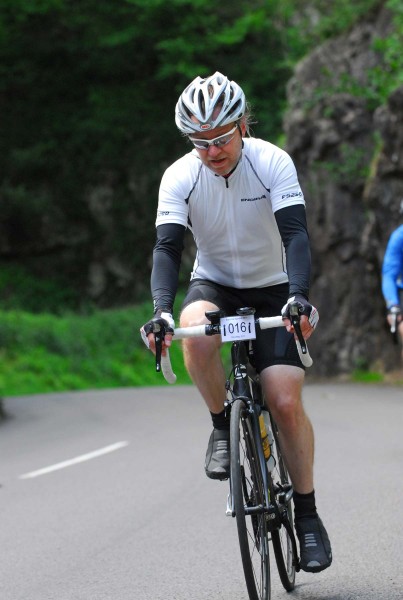 I THINK WE CAN START FROM THE BEGINNING: WHO’S PAUL DALE?
I THINK WE CAN START FROM THE BEGINNING: WHO’S PAUL DALE?
That’s a good question and one I have been asking myself since I was seventeen. In plain terms, I’m a middle aged Englishman who enjoys life and, in particular, cycling, writing, games and film. But that doesn’t say much. I think if I were to be pressed, I would say I am a curious person who is fascinated by the world (and beyond) and delights in humour and imagination. Roman Catholicism and Buddhism have also had a major influence on me, as I grew up in the former case, and as I matured in the latter case.
HOW DID YOU BEGIN TO WRITE?
The first writing I did was short, comic stories that involved my friends in a fantasy setting. I was working and did night classes, dabbling with novel ideas. I broadened out, writing more general fiction and short stories, basically to learn the craft of telling a story and developing characters. I think short stories, when done well, teach economy and efficiency in writing. After several years of that, I used those short stories to get onto a Masters Degree course where I learned about writing across many disciplines, including scripts, radio, plays and novels.
DO YOU WANT TO SPEAK US ABOUT YOUR FIRST WORKS?
My first serious works were probably the short stories, of which I’m most pleased with The Flamenco Dancers, Fast Food Fast Money and A Blobby Man in a Bath. The latter appeared in the Masters anthology. The Dark Lord’s Handbook is the first novel that I was happy enough to have published, but I have also written a novel set in Las Vegas called Take Me to the River, which sits on my computer and taunts me. I may, one day, polish it up and publish it.
YOUR MOST FAMOUS BOOK IS “THE DARK LORD’S HANDBOOK”. WHAT CAN YOU TELL US ABOUT?
The Dark Lord’s Handbook resulted from a peculiar chain of thought. I was raised a strict Roman Catholic and the notion of original sin is one that has always affected me. For some reason, one day I was thinking about what it would be like if a baby was born who was truly evil, right from the start. It was an idea that seemed ridiculous, and what quickly followed was the idea of Dark Lords in fantasy, and where did they come from? Even a Dark Lord has a mother, right? Then how did they actually become a Dark Lord? It’s not like a regular profession. It became more amusing to me the more I thought about it, and so I started to write it down. I considered many settings, but the fantasy one gave me the most material as that is where Dark Lords dominate and also offered the opportunity for humour. It seemed a perfect idea.
HOW DID YOU INVENT THE STORY AND HOW IT WILL DEVELOP THE SERIES?
I’ve tried writing in many different ways. I think every writer writes differently. In one novel, I might have the whole story plotted out and all the characters known. With The Dark Lord’s Handbook, this was not the case. I had the idea, and started with Morden’s conception and birth, and moved forward from there. Other themes in the book came from what was happening at the time; so big business and the banking crisis, and I was watching a lot of cookery competitions (Master Chef), which ties in with this strange fascination that seems to exist in fantasy writing with food. So I decided to have fun with it.
As for the series, I had a clear idea of where I wanted it to go but had no idea how the first book would be received. It was hard to deliver what I thought was a complete story while allowing for books to follow. If The Dark Lord’s Handbook had not worked, I would have moved on to another project. As it is, the sequel is substantially developed. I don’t really want to repeat myself too closely, so although the general theme and style remains, I think it’s a different kind of story with different themes. I’m having fun with old and new characters so I’m confident it will work out fine.
WHICH WERE THE DIFFICULTIES YOU MET WITH THE CREATION OF THE CHARACTERS AND OF THE LOCATIONS?
The difficulty with characters is to make them real, at least to me. One of the important things for me was to have Morden, a Dark Lord in being, a real person, with the kinds of strengths and weaknesses we all have. Likewise, with characters like Edwin and Penbury, they need to have real lives and personality. As for locations, it is no accident that the book starts in an inn. Fantasy is full of cliché, and given one of the objectives of the book was to poke gentle fun at the genre, it’s a good place to start. That aside, this book was not, in my mind, about creating a brand new world that has been done so well by many writers, but to use locations that the reader could easily connect to and focus more on story and character. Some of the locations, like Firena, are born of my having travelled in Spain and Italy and loving the old medieval towns like Granada, Seville, Venice and Bologna (the middle anyway).
RECENTLY YOUR BOOK WAS TRANSLATED IN ITALY. WHAT DO YOU THINK ABOUT OUR COUNTRY?
I have only been to Italy once, and visited Bologna, Florence and Venice, which I think is a good start. I am very keen on history, and live in a city (Bath) which was essentially founded by Rome, so I feel quite an affinity to Italy. Penbury is a fairly English character, but one who lives in a Latin influenced city and loves food, wine and the arts. Then there is my love of cycling, and the Giro. I watch it every year. It’s a great event and shows off Italy as a beautiful country.
IN THESE YEARS YOU ALWAYS HAD A PREDILECTION FOR THE AMAZING. WHAT’S T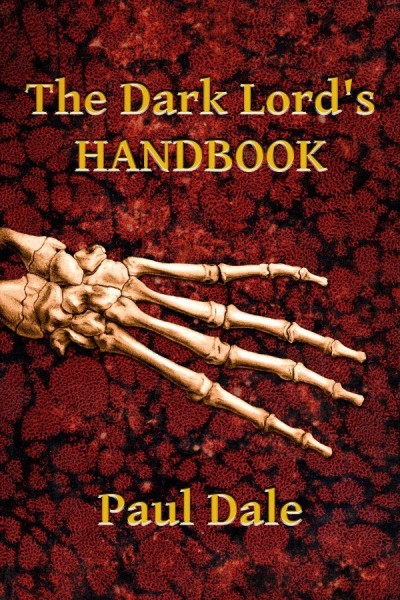 HE MEANING FOR YOU OF THIS TOPIC?
HE MEANING FOR YOU OF THIS TOPIC?
I studied Physics at University where I discovered quantum mechanics, and the physics of stars. I think the universe is an amazing place, and is full of amazing things. I think when it comes to fantasy and science fiction, it is a matter of taking this fascination with this world, and inventing even more amazing and fantastic places in the imagination and then sharing it through writing. If I could paint, maybe I would do it that way. If I could play the guitar, then perhaps through music. As it is, I write and that is a fine medium to communicate the fantastic.
NOW, A GENERAL QUESTION. WHERE DO YOU FIND THE INSPIRATION FOR ALL YOUR STORIES?
Most of the ideas I have for stories come when I least expect them. At which point, I write the idea down and put in a folder on the computer. Most of the time, the ideas are absurd extensions of commonplace things or people I find interesting. Sometimes they come from conversations in my head between characters that occur to me. I do love dialogue, and arguments in particular.
WHICH ARE YOUR FAVORITE WRITERS?
If I had a top three, currently it would probably be Haruki Murakami (of Norwegian Wood fame, but having written many great books), Cormac McCarthy (who I found when studying American Literature) and Iain Banks (a great loss). Top threes aren’t that fair though, and there are so many good writers. I love the work of Charles Stross, in particular the Laundry series, as I read H.P. Lovecraft a lot at university. I was at university when The Colour of Magic was published, and immediately read everything that Terry Pratchett wrote for years until his prolific output out-did me. My favourite book of his is probably Mort. When it comes to humour, going back a long way, Andrew Marshall and John Lloyd have done great stuff, and there are a couple of homages to their Hordes of the Things BBC radio spoof in The Dark Lord’s Handbook.
AND YOUR FAVORITE FILMS?
Wow, another tough question. I love cinema. There are so many that are good for so many different reasons; they make you laugh, they make you cry. There are certain films, while not great, I find I can watch over and over. The Chronicles of Riddick is one of those films. Films that deeply affected me must include Schindler’s List. I remember clearly seeing that when it was released in a cinema in Manchester and the remarkable atmosphere in the audience as we left. My favourite comic book film is probably The Watchmen, and for fantasy, The Fellowship of the Ring. For sci-fi, Alien is hard to beat.
SPEAKING ABOUT MULTIMEDIA, DO WE HAVE TO EXPECT ANY WORKS (FILM OR TV SERIES) FROM YOUR SAGA? OR MAYBE COMICS OR VIDEOGAMES?
In my dreams, yes. As for reality, who knows. I imagine every writer would like to see their book made visual in some way. If I were to play the casting game, I think Mark Strong has draconian features that would suit Lord Deathwing.
THE LAST REQUEST. WHICH PLANS DO YOU HAVE FOR THE FUTURE AND WHICH ARE YOUR DREAMS?
My immediate plans are to finish the trilogy (which in keeping with the theme of light hearted, poking fun is a cliché hard to resist). Beyond that, I have a number of different stories clamouring for attention in several different genres. My hard science background draws me in that direction at the moment, but that can easily change. My ultimate dream is lead a good life and enjoy it as much as I can. It sounds corny and canned but there you have it. Oh, and have a massive blockbuster book that gets turned into a film and has t-shirts and toys made, but that’s a taken, right? And I almost forgot, to climb Alp D’Huez.
AND WE WILL BE THERE WITH YOU … AT LEAST WITH OUR MIND!
